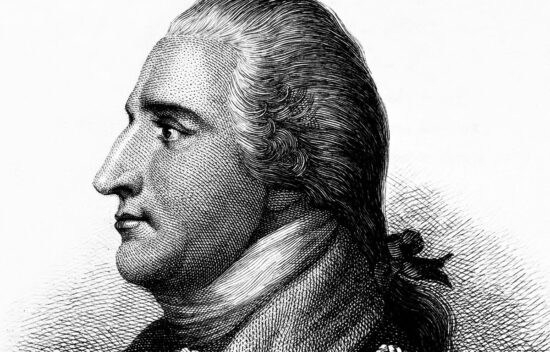
Benedict Arnold’s Treason
Martin, James Kirby. Benedict Arnold, Revolutionary Hero. New York: New York University Press, 2000.
Martin, James Kirby. “Benedict Arnold’s Treason as Political Protest.” Parameters, 11:63-74.
Wallace, Willard M. “Benedict Arnold: Traitorous Patriot,” in George Athan Billias, ed., George Washington’s Generals. New York: William Morrow & Co., 1964. 163-92.
CENTRAL QUESTION: How can we expand our understanding of a virtue by examining its opposite?
Before class, draft a list of “villains” – at least one for every 3 to 4 students. Use the Infamous Examples Cards, adding names that will be most relevant to your students.
Assign students to groups of 3 or 4. Distribute one Infamous Examples card to each group. Give the groups a few minutes to consolidate and discuss their knowledge about the person/people listed on their cards.
Have each group report to the class the name on their card and a brief statement explaining who that person (or group of people) is. (All are famous for acts of betrayal.)
Ask what the opposite of betrayal might be. (Loyalty, trustworthiness, honor, integrity)
Ask the central question: How can we expand our understanding of a virtue by examining its opposite? During this discussion, refer students to the names on their cards, asking them to describe our reactions to the betrayals and why we react in that way. Referring students to the names on their Infamous Examples cards, ask what the motives were for the betrayal. Ask how understanding the motives for non-virtuous deeds helps us to understand human nature. Ask how self-deception might lead us away from integrity. Ask if they believe that may have happened with any of the people on the Infamous Examples cards.
Post this definition of integrity: To tell the truth, expose untruths, and keep your promises. Ask for specific ways we can better understand or appreciate integrity through examples of betrayal. Ask if, based on these examples, human beings are fundamentally good, or fundamentally evil. (While human beings are imperfect, we also have the capacity to act virtuously.) To enliven the dialogue, you may want to ask how a character like J.K. Rowling’s Severus Snape fits into this discussion.
Transition to the Benedict Arnold narrative by asking students to name the infamous person from U.S. history whose name has become synonymous with treachery. (Benedict Arnold.) Ask students to tell what they know about Benedict Arnold.
Explain that they will now have the opportunity examine Arnold even more closely as the opposite of integrity, and to use him to figure out some reasons why people don’t always act with integrity.
The optional introductory activity above is designed to support you in the classroom. However, the primary narratives and photos in the section that follows can be used with or without this introduction.


